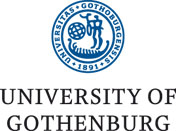
2011.12.14, 1112 Yәru•shâ•laꞋ yim Universal Time
Hellenization & Europeanization of Mark's Gospel
When the story of Jzeus known as The Gospel of Mark began to circulate as a written text in the ancient Mediterranean cities, it became engaged in a form of negotiation with the Roman imperial culture [– Hellenism = Greek mythology!]. A newly published dissertation from the University of Gothenburg (Sweden) shows, however, that a European colonial heritage probably has caused biblical scholars to neglect the earliest Gospel's primary act of negotiation with its imperial [Hellenism = Greek mythology!] context.
Biblical scholar Hans Leander has investigated how Mark's Gospel was related to Rome's Empire when it began to circulate among the early Christians during the first century C.E. He has approached the question from the supposition that the Bible is connected to a colonial heritage and that biblical interpretation, including the academic kind, is always affected by the interpreter's location and perspective. In order to verify the existence of a colonial heritage, he has studied how nineteenth century biblical commentaries on Mark were influenced by that epoch's colonial mindset.
"I found that ideas about 'Greek' and 'Semitic' within biblical scholarship interacted with an elevated European colonial identity. The 'Greek' often represented the metaphysical, the progressive and the Christian, while the 'Semite' (or the 'Jew') represented the theocratic and stagnant, often represented as 'the other'. There was also an established view of the 'heathen' that was central to the colonial expansion and that continued to be prevalent in biblical scholarship during the period", says Hans Leander.
Hans Leander then applied a postcolonial perspective to the Gospel of Mark in order to study how the Gospel related to the Roman imperial power. Various concepts have been developed within postcolonial theory that enables a more complex understanding of unequal relationships than a clear-cut "for" or "against" the dominating party. The dissertation applies these concepts to the Gospel of Mark, which it reads as a representation of a minority group at the fringes of the imperial culture. It is concluded that even if the Gospel of Mark is ambiguous in relation to Rome, its narrative transmits subtle and yet clear subversive signals.
The relationship between the Gospel of Mark and the Roman Empire, Hans Leander argues, has primarily been understood from the modern separation between religion and politics. But the dissertation criticizes such an understanding.
"Such a separation was alien to the first recipients of the Gospel of Mark. There was no secular political sphere that was separate from religion. We must think beyond this modern separation if we are to understand the significance of Mark for its first audience", says Hans Leander.
I have emailed the following to Dr. (I presume, by now) Hans Leander at the Univ. of Gothenburg:
Subj: Does your thesis on "Mark" relate to my findings?
My early research back in the late 70s and early 80s was based on my conclusion that all of the Greek gospels and NT were based on a 2nd-4th century syncretization of the Romans' native Hellenist religion (mythology) with a Hellenization of a couple of concepts learned from Greek-speaking Hellenist Jews. The unsurprising result was a thoroughly Hellenized distortion / syncretism; neither pristinely Judaic nor pristinely B.C.E. Greek myth; i.e., a new religion (Roman Hellenism-Christianity).
I'd be interested in what ties you might see to my conclusions. I can't afford to send you my book (The Netzarim Reconstruction of Hebrew Matityahu) but much of my research is found in our website at www.netzarim.co.il, particularly in our History Museum pages (click on the icon in the navigation panel at left of our home page).
Cordially,
Paqid Yirmeyahu
Paqid 16, the Netzarim (Orthodox Jews in Israel)
Ra'anana, Israel
(Pâ•qidꞋ YirmәyâhꞋ u, Ra•a•nanꞋ â(h), Yi•sә•râ•eilꞋ ) ![]()
| Tweet |
If you like this post, please click the "Recommend" button above and Tweet something like the following: #Gospel #Mark Click #WebCafe @ netzarim.co.il #Hellenism #Christian #Roman #Bible #interpretation #Greek #antiSemitic #religion #politics

